Muhammad Ali has died at the age of 74, a family spokesman has said.
The former world heavyweight boxing champion, one of the world's best-known sportsmen, died at a hospital in the US city of Phoenix in Arizona state after being admitted on Thursday.
He was suffering from a respiratory illness, a condition that was complicated by Parkinson's disease.
The funeral will take place in Ali's hometown of Louisville, Kentucky, his family said in a statement.
Obituary: Muhammad Ali
Muhammad Ali in his own words
Born Cassius Marcellus Clay, Ali shot to fame by winning light-heavyweight gold at the 1960 Rome Olympics.
Nicknamed "The Greatest", the American beat Sonny Liston in 1964 to win his first world title and became the first boxer to capture a world heavyweight title on three separate occasions.
He eventually retired in 1981, having won 56 of his 61 fights.
The former heavyweight champion was suffering from respiratory problems
Crowned "Sportsman of the Century" by Sports Illustrated and "Sports Personality of the Century" by the BBC, Ali was noted for his pre- and post-fight talk and bold fight predictions just as much as his boxing skills inside the ring.
But he was also a civil rights campaigner and poet who transcended the bounds of sport, race and nationality.
Asked how he would like to be remembered, he once said: "As a man who never sold out his people. But if that's too much, then just a good boxer. I won't even mind if you don't mention how pretty I was."
Ali turned professional immediately after the Rome Olympics and rose through the heavyweight ranks, delighting crowds with his showboating, shuffling feet and lightning reflexes.
British champion Henry Cooper came close to stopping Clay, as he was still known, when they met in a non-title bout in London in 1963.
Cooper floored the American with a left hook, but Clay picked himself up off the canvas and won the fight in the next round when a severe cut around Cooper's left eye forced the Englishman to retire.
Ali's boxing career
- Won Olympic light-heavyweight gold in 1960
- Turned professional that year and was world heavyweight champion from 1964 to 1967, 1974 to 1978 and 1978 to 1979
- Had 61 professional bouts, winning 56 (37 knockouts, 19 decisions), and losing five (4 decisions, 1 retirement)
In February the following year, Clay stunned the boxing world by winning his first world heavyweight title at the age of 22.
He predicted he would beat Liston, who had never lost, but few believed he could do it.
Yet, after six stunning rounds, Liston quit on his stool, unable to cope with his brash, young opponent.
At the time of his first fight with Liston, Clay was already involved with the Nation of Islam, a religious movement whose stated goals were to improve the spiritual, mental, social, and economic condition of African Americans in the United States.
But in contrast to the inclusive approach favoured by civil rights leaders like Dr Martin Luther King, the Nation of Islam called for separate black development and was treated by suspicion by the American public.
Ali eventually converted to Islam, ditching what he perceived was his "slave name" and becoming Cassius X and then Muhammad Ali.
In 1967, Ali took the momentous decision of opposing the US war in Vietnam, a move that was widely criticised by his fellow Americans.
He refused to be drafted into the US military and was subsequently stripped of his world title and boxing licence. He would not fight again for nearly four years.
After his conviction for refusing the draft was overturned in 1971, Ali returned to the ring and fought in three of the most iconic contests in boxing history, helping restore his reputation with the public.
He was handed his first professional defeat by Joe Frazier in the "Fight of the Century" in New York on 8 March 1971, only to regain his title with an eighth-round knockout of George Foreman in the "Rumble in the Jungle" in Kinshasa, Zaire (now Democratic Republic of Congo) on 30 October 1974.
Ali fought Frazier for a third and final time in the Philippines on 1 October 1975, coming out on top in the "Thrilla in Manila" when Frazier failed to emerge for the 15th and final round.
Six defences of his title followed before Ali lost on points to Leon Spinks in February 1978, although he regained the world title by the end of the year, avenging his defeat at the hands of the 1976 Olympic light-heavyweight champion.
Ali's career ended with one-sided defeats by Larry Holmes in 1980 and Trevor Berbick in 1981, many thinking he should have retired long before.
He fought a total of 61 times as a professional, losing five times and winning 37 bouts by knockout.
Soon after retiring, rumours began to circulate about the state of Ali's health. His speech had become slurred, he shuffled and he was often drowsy.
Parkinson's Syndrome was eventually diagnosed but Ali continued to make public appearances, receiving warm welcomes wherever he travelled.
He lit the Olympic cauldron at the 1996 Games in Atlanta and carried the Olympic flag at the opening ceremony for the 2012 Games in London.
Let's block ads! (Why?)
BBC News






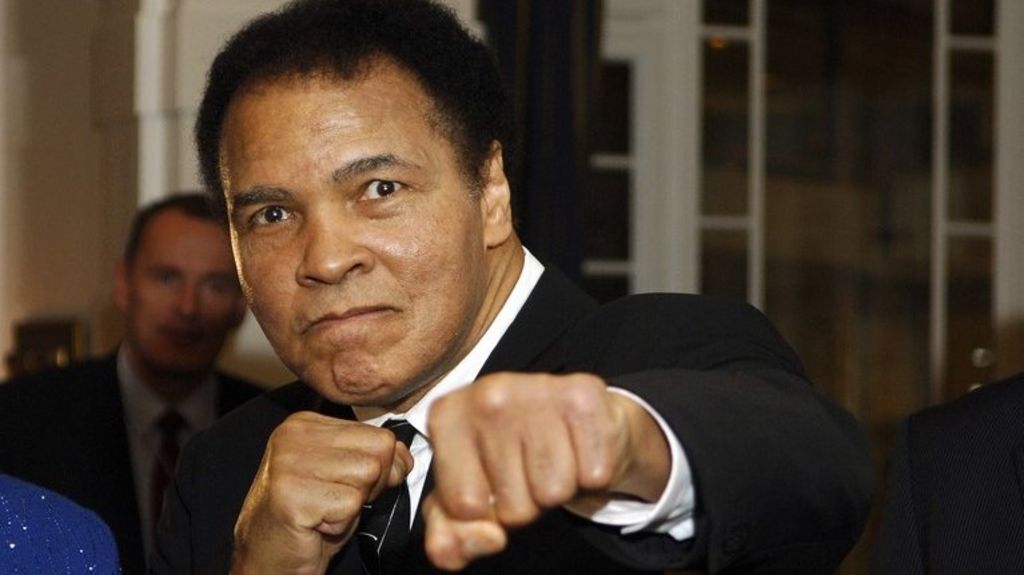


 Reply With Quote
Reply With Quote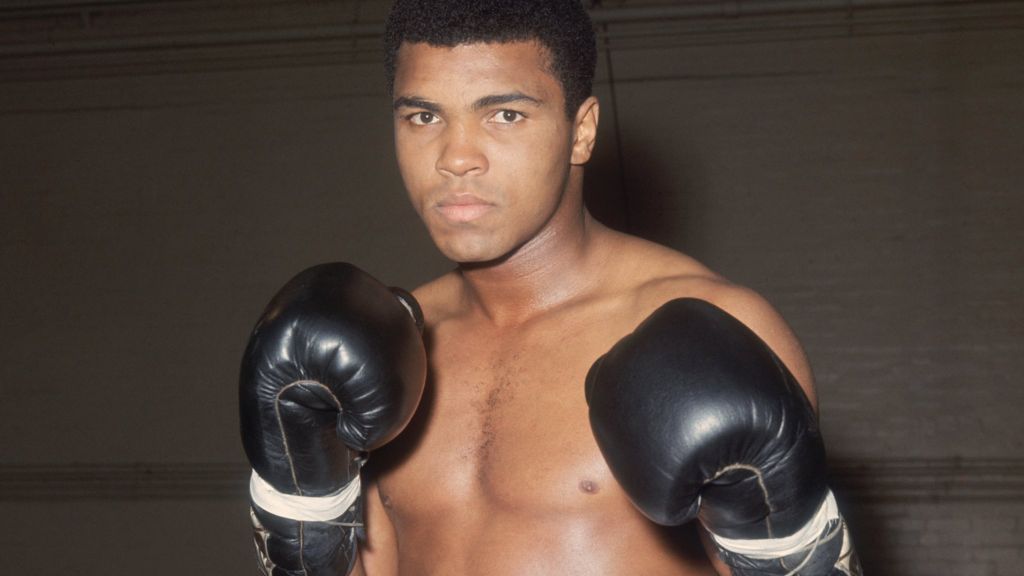


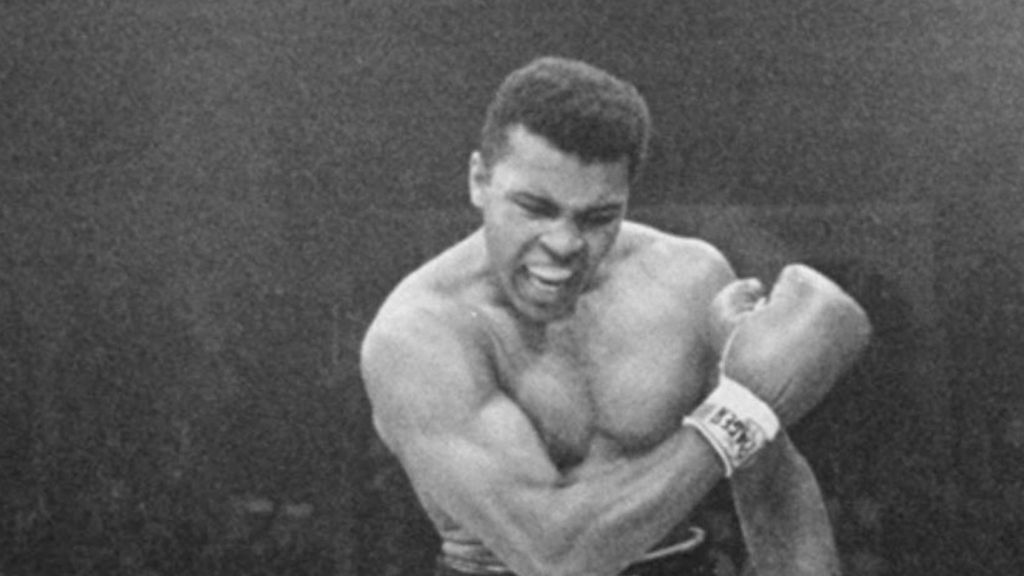
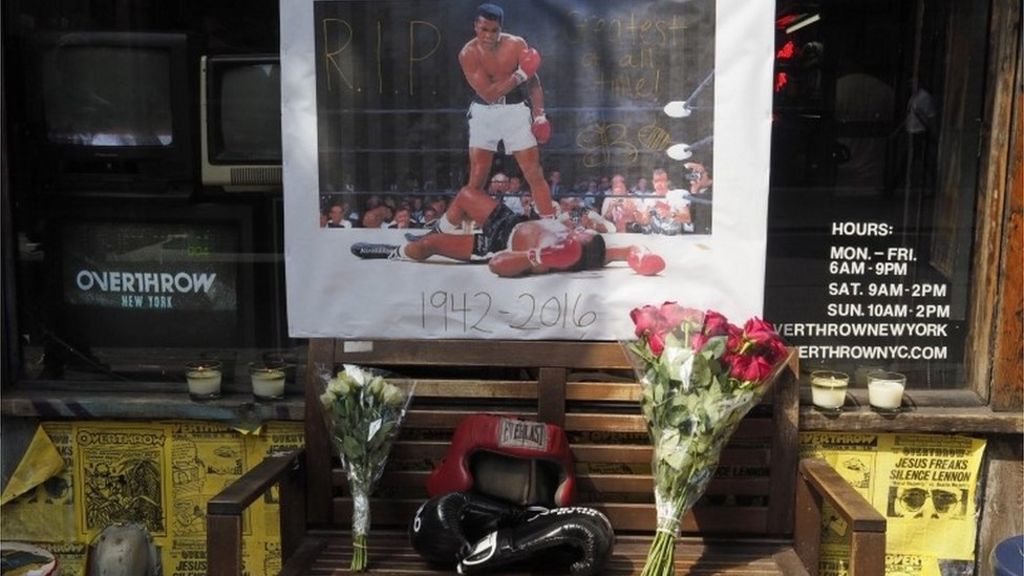
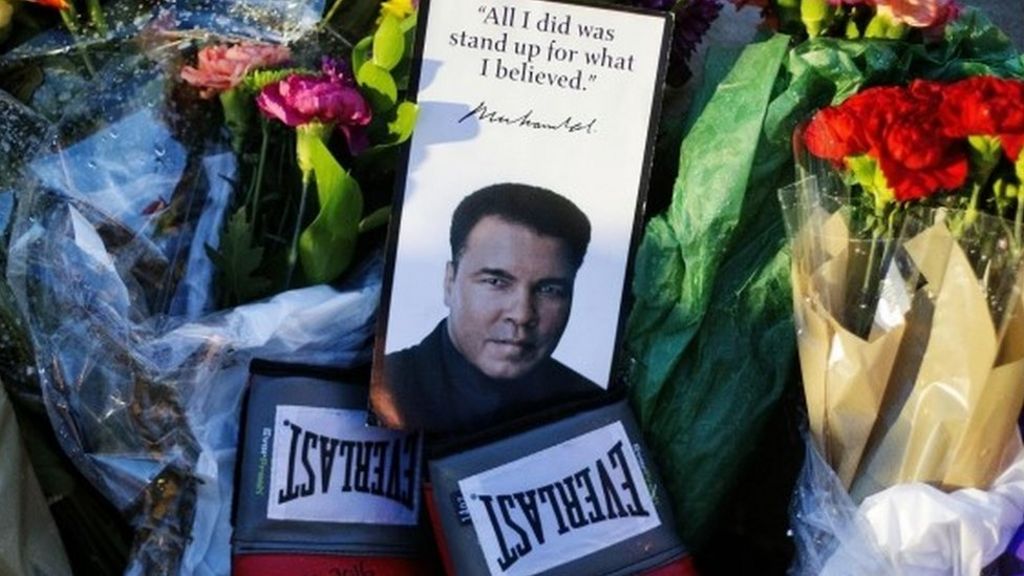



Social Networking Bookmarks